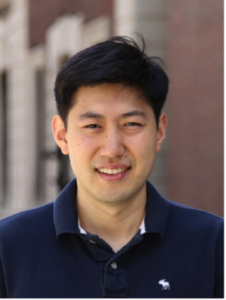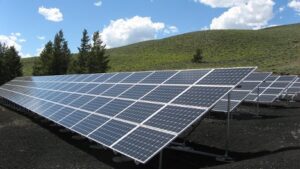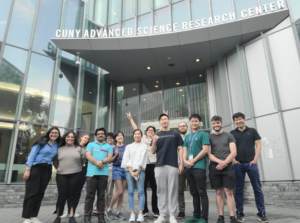Assistant Professor of Chemical Engineering at City College and the CUNY Advanced Research Science Center, Dr. Xi Chen, is the team leader of Team Hygroscience, proposing to develop proof of the viability of a new form of sustainable energy – evaporation energy.

The College-Wide Research Vision (CRV) is a competition that attempts to solve modern challenges faced by society by encouraging researchers from different disciplines to collaborate. in teams, utilizing their skills to seek solutions that may not have been as feasible if they worked independently. After three years of initial funding provided by the CRV, the teams will seek funding to sustain their research projects.
Dr. Chen’s research is prompted by the ongoing need for sustainable energy sources. Currently, some forms of renewable energy still present issues that hinder their widespread implementation. For example, solar panels passively pollute the environment during their manufacture and at the end of the life cycle, they must be thrown away as they are non-recyclable. Some renewable energy sources, like solar and wind, are dependent on certain environmental conditions. “Usually for wind and solar power,” Dr. Chen said, “If it’s night or it’s not windy, you don’t have power, and you also need energy storage devices to link to the grid.”
“Evaporation is a major control of the water cycle that involves a significant form of energy transfer on Earth.”
For their project, Team Hygroscience hopes to demonstrate the benefits of evaporation energy as a new form of renewable energy.
Water can give off a great amount of energy when it evaporates, and by building engines with water-responsive material, one can harness that energy and turn it into force and motion. “The mobile part inside our device is made of what we called water-responsive material – it can powerfully swell when humidity is high and shrink when humidity is low.”

Dr. Chen and his students have built several functioning, proof-of-concept evaporation-powered engines. The goal of the CRV project is to both build a much larger version of the engines and to show the economic and political feasibility of evaporation as a feasible source of renewable energy.
Dr. Chen is working alongside four other researchers on Team Hygroscience.
Dr. Ahu Aydogan, Associate Professor at the Bernard and Anne Spitzer School of Architecture, will be partially responsible for product design. She has previously completed work in indoor air purifying systems. Dr. Raymond Tu, material scientist and Associate Professor in C hemical Engineering, will help develop the scalable silk-based water-responsive materials necessary for large versions of the engine to work. Dr. Charles Vörösmarty, distinguished scientist and Professor of the CUNY Environmental Cross-Roads Initiative, will use his energy analysis experience to assess the feasibility of evaporation energy under different environmental conditions; Dr. Daniel DiSalvo, Professor and chair of the Department of Political Science at the Colin Powell School for Civic and Global Leadership, will help develop material to pitch evaporation energy as a serious sustainable energy alternative to public and government funding agencies.
hemical Engineering, will help develop the scalable silk-based water-responsive materials necessary for large versions of the engine to work. Dr. Charles Vörösmarty, distinguished scientist and Professor of the CUNY Environmental Cross-Roads Initiative, will use his energy analysis experience to assess the feasibility of evaporation energy under different environmental conditions; Dr. Daniel DiSalvo, Professor and chair of the Department of Political Science at the Colin Powell School for Civic and Global Leadership, will help develop material to pitch evaporation energy as a serious sustainable energy alternative to public and government funding agencies.
“I think the fundamental science works,” Dr. Chen said, “it is our job to demonstrate that this technique can generate a usable amount of energy, and to inform people that this is really doable.”
Roxanne Lee is an editorial assistant on the RICC who joined the newsletter in December 2021. She loves writing about all sorts of scientific fields but favors environmental science, biology, and ecology in particular.